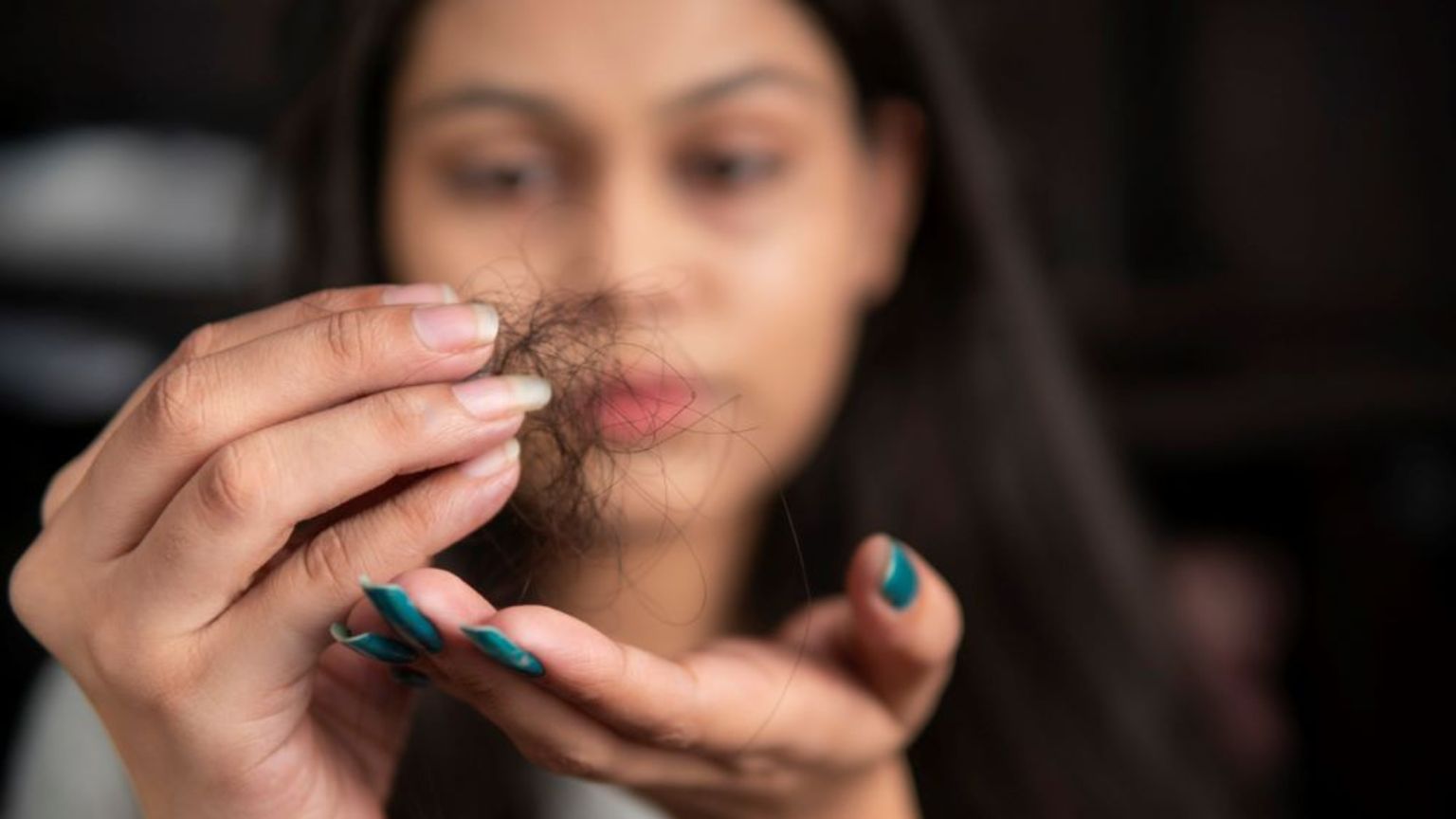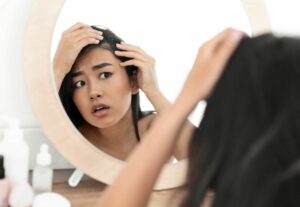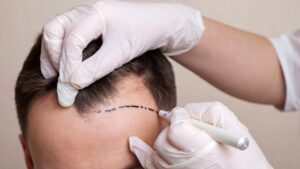Healthista sat down with Hannah Gaboardi, a leading trichologist and hair health expert, to discuss male and female hair loss, why it happens and how to treat it
Our hair is an important symbol of our appearance and more broadly, our self-esteem. However, hair loss can greatly affect self-image and confidence.
Hair loss is an extremely common problem, especially for men. In fact, according to the American Hair Loss Association, 66 per cent of men will have some form of hair loss by the age of 35. This number jumps to 85 per cent by the age of 50.
Of the men who have experienced hair loss, 70 per cent say their hair is an important feature of their image and 62 per cent say hair loss could affect their self-esteem.
hair loss can greatly affect self-image and confidence
This issue doesn’t only affect men. About one-third of women will experience hair loss at some point in their lives and the likelihood of women losing their hair increases with age, especially among postmenopausal women.
Hair loss is a normal phenomenon, but it can still be upsetting and disheartening. However, there are treatments available to slow or stop the thinning and loss of your hair.
READ MORE: Post-covid hair loss? 5 ways to keep your hair and scalp healthy
Why does hair loss happen?
There are many causes of hair loss for men and women, according to Hannah Gaboardi, founder of The Hair Growth Clinic. Some of the main reasons include genetics, aging, hormones, certain illnesses, medications or stress.
Having a poor diet that lacks necessary nutrients is also a major contributor to hair loss.
Hair has two main parts – the hair shaft, the part of the hair that is visible, and the hair follicle, the part under the skin. The follicle is extremely active and sensitive, so nutrient deficiencies can limit or even stop hair growth altogether.
main reasons include genetics, aging, hormones, certain illnesses, medications or stress
During menopause, production of oestrogen and progesterone drop, causing hormone imbalances and thinning or slower growth of hair. The same goes for postpartum women.
‘When women have a baby, she loses her hair after giving birth due to having a rapid loss in oestrogen,’ Gaboardi says.
Giving birth or going through menopause can also cause hair loss.
READ MORE: Why is my hair falling out? 5 causes of hair loss and exactly what to do
What does hair loss look like for women and men?
Hair loss occurs differently in women than it does in men, from age of onset to the actual appearance.
For starters, hair loss is less common in women than in men and tends to be more subtle. Most women experience the overall thinning of their hair and a widening part, while men are more likely to experience actual balding.
‘In male hair thinning, the earliest warning signs includes hair thinning around the temple, front of the scalp and at the back of the head, known as the crown or vertex,’ Gaboardi says.
hair loss is less common in women than in men and tends to be more subtle
Along with thinning hair before actual hair loss, other warning signs for male hair loss is a receding hair line and your part getting wider.
Men also tend to lose their hair earlier than women. Hair thinning and baldness in men normally can start occurring in their 20s, but it may happen as early as their teenage years.
On the other hand, hair loss in women normally begins when they reach their 40s, 50s, or 60s, according to The American Academy of Dermatology.
READ MORE: Hair falling out? This expert advice on hair loss will help
What are the mental health effects of hair loss?
Since our hair is heavily linked to our appearance and self-esteem, it’s no surprise that losing it can take its toll on our mental health.
Effects can range from mild to severe, per the United States National Library of Medicine.
Symptoms of hair loss can include anger, anxiety, depression, a decrease in confidence, social withdrawal and in extreme cases, suicidal tendencies. Psychological impacts of hair loss are higher for women than for men.
‘A lot of my female (and some male) clients that come to me with balding or thinning issues say their hair plays a huge part in their identity, so when they start to lose it or it becomes thin, it hits them arguably harder,’ Gaboardi says.
READ MORE: Want shiny, long hair? Nutritionist reveals 5 key foods for healthy hair growth
How to prevent and treat hair loss
While genetics play a large role in losing your hair, many preventative measures for hair loss come down to lifestyle. These precautions can potentially stop current hair loss from continuing further as well. If you notice symptoms of hair loss, take action as soon as possible.
‘The earlier you begin to prevent it, the more hair you will be able to care for and maintain,’ Gaboardi says.
Eating healthy with the proper vitamins is one of the best ways to prevent and stop hair loss, according to Gaboardi. Some research suggests lacking certain vitamins, like zinc, biotin and iron, is associated with losing your hair. Supplements can potentially help with a nutrient deficiency and treat hair problems, but talk to your doctor first.
Supplements can potentially help with a nutrient deficiency and treat hair problems
Not smoking, using gentle shampoo and limiting your use of curling and flat irons can also help prevent hair loss or stop it from continuing further.
Other treatments include laser hair therapy, which can stimulate hair growth, or hair transplants, which moves existing hair to areas that are bald or thinning.
If you choose to undergo a more rigorous medical treatment like these, Gaboardi recommends taking supplemental measures during your recovery that can potentially boost hair growth. She says massaging your scalp to stimulate blood flow, keeping your stress levels low and eating foods like fatty fish, carrots, spinach and sweet potatoes can help with your hair recovery.

Like this article? Sign up to our newsletter to get more articles like this delivered straight to your inbox.























































